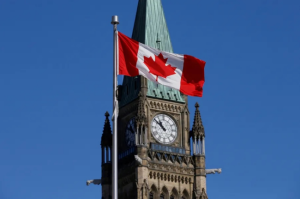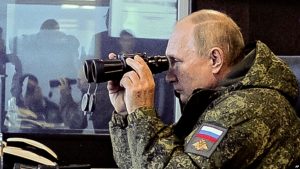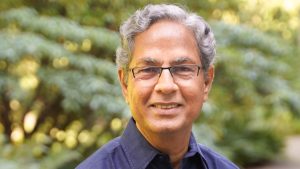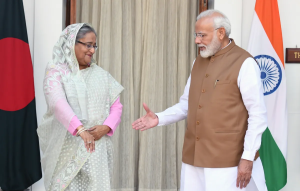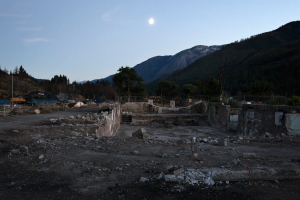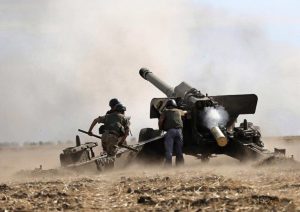Prof. Maxwell Cameron calls for return of civility and nonpartisanship to politics
Though Prof. Cameron has observed politicians being passionate about serving their constituents, he also notes their at-times “hyper-partisan, adversarial and uncivil behaviours.” Through facilitated reflective discussions, he hopes to solve this issue. “If politicians value civility,” Prof. Cameron writes, “they must learn to model it.”
Prof. Lisa Sundstrom comments on apathy of Russian citizens in Ukraine war
Prof. Sundstrom says that although there is some support for the invasion of Ukraine in Russia, “people are just going about their lives … and if it doesn’t impact them directly, they don’t have to worry.” Although external pressure from Ukraine and the world continues to mount on Russia, internal opinions are not showing much change.
Dr. Amy Janzwood co-authors story on harmful natural gas “bridge fuel” narrative
“Decarbonization will have real costs for oil producing provinces,” writes SSHRC Postdoctoral Fellow Amy Janzwood. “Successful policy-making needs to address these impacts up front.”
Prof. Kurt Hübner on new U.K. PM Liz Truss’ promises: “there are a manifold of challenges”
Prof. Kurt Hübner, in CTV News interview, discusses the numerous challenges facing the U.K.’s new Prime Minister Liz Truss, such as her mandate, political popularity, and U.K. economic issues.
Professor Barbara Arniel elected to Royal Society of Canada
UBC Political Science Professor Barbara Arneil is one of thirteen UBC faculty members have been announced by the Royal Society of Canada (RSC) as new Fellows and as new Members of the College of New Scholars, Artists and Scientists.
Welcoming Visiting Professor Swaran Singh
Hailing from Jawaharlal Nehru University, and President of the Association of Asia Scholars, Visiting Professor Swaran Singh brings his wisdom and experiences to the UBC Political Science department. We spoke to him about his upcoming talk at UBC Political Science, his teaching, and his thoughts on coming to Vancouver.
Bangladeshi PM’s visit to India sends a “positive message,” says visiting Prof. Swaran Singh
Bangladeshi PM Sheikh Hasina’s upcoming trip to India will be a highlight of the nations’ golden chapter, says visiting Prof. Singh. “These examples of the changing nature of their bilateral relations have lessons and implications for the larger region.”
Prof. Kathryn Harrison highlights the potential impact of a Vancouver lawsuit against fossil-fuel companies
A specialist on environmental policy, Prof. Kathryn Harrison says that a lawsuit would be monumental, considering that ““the fossil fuel industry still holds a very privileged position in Canadian politics.” The Vancouver council has established a plan to fund the lawsuit, but the new council is yet to confirm it.
Visiting Prof. Swaran Singh comments on role of United Nations Arms Trade Treaty in Op-Ed
The UN Arms Trade Treaty asks that parties report annually their trade in conventional weapons. But with hesitation surrounding export-control and arms transfers, “the lure of financial and political windfalls from the conventional weapons trade has made the ATT’s task a difficult one,” visiting Prof. Singh writes.
Pelosi’s visit could derail US–China compromise over Taiwan: Prof. Yves Tiberghien and Visiting Prof. Swaran Singh write in East Asia Forum
“The delicate diplomatic compromise of constructive ambiguity over Taiwan’s status initiated by former US national security advisor Henry Kissinger and Chinese premier Zhou Enlai in 1972 is fraying beyond repair,” Prof. Yves Tiberghien and Visiting Prof. Swaran Singh write. “We are witnessing a ratcheting up of the struggle between ideational commitments to the rival principles of democracy and national sovereignty.”
